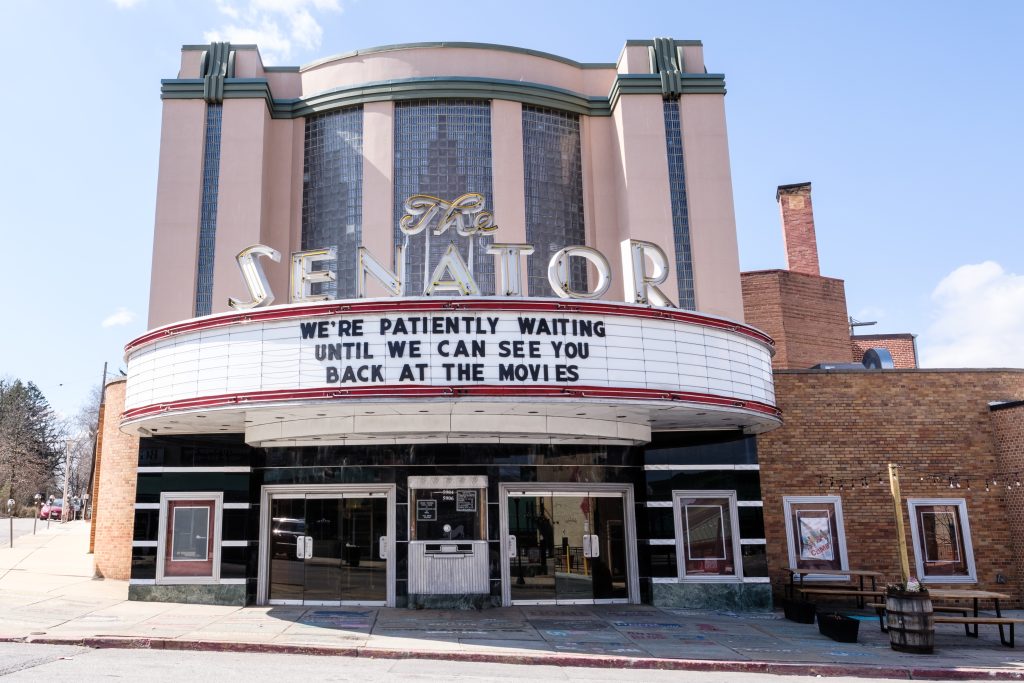8.1 Movies

The lights dim, the trailers roll, and the familiar scent of popcorn fills the air – for decades, this was the quintessential movie-going experience. This shared communal ritual defined the film industry. From the silent era’s flickering images to the golden age of Hollywood and the blockbuster spectacles of the late 20th century, cinema thrived on this model: studios produced, distributors marketed, and theaters exhibited, drawing millions into darkened auditoriums worldwide. This historical arc, characterized by technological evolution from black and white to color, from silent to sound, and from analog to digital, consistently pointed toward larger screens and more immersive collective experiences. However, the dawn of the 21st century, and particularly the seismic shifts of the past five years, have profoundly reshaped this trajectory, pushing the film industry into an unprecedented era of transformation.
The most undeniable and immediate catalyst for this radical shift was the COVID-19 pandemic, which became a global health crisis, forcing lockdowns and social distancing. As a result, movie theaters, once the bedrock of the industry, faced existential threats. Chains worldwide shuttered their doors, some permanently, while others grappled with reduced capacities and hesitant audiences upon reopening. This unprecedented disruption had a cascading effect on studios. With their primary revenue stream – theatrical box office – drying up, the traditional release strategy, which relied on exclusive cinema windows before the advent of home video, became untenable.
The most visible consequence was the widespread delay of major film releases. Blockbusters poised to dominate the box office, like Marvel’s Black Widow, became emblems of this uncertainty. Initially slated for a May 2020 release, Black Widow endured multiple postponements before ultimately adopting a hybrid release strategy in July 2021, launching simultaneously in theaters and on Disney+ Premier Access. This decision, while a lifeline for Disney’s streaming service, ignited a fierce debate about theatrical exclusivity and led to a high-profile lawsuit from its star, Scarlett Johansson, over lost box office bonuses. Similar dilemmas faced nearly every major studio, as films ranging from the James Bond installment No Time to Die to Top Gun: Maverick and F9 saw their release dates shuffled, sometimes for years. This era of delays not only created a significant backlog of content but also forced studios to accelerate their pivot towards direct-to-consumer streaming models, blurring the lines between cinematic releases and home entertainment.
Yet, even amidst the turmoil, the industry demonstrated its adaptive capacity, sometimes finding unexpected avenues for success. A fascinating and indicative trend of the post-pandemic landscape is the emergence of concert films and experiential content filling cinematic voids. The monumental success of Taylor Swift’s The Eras Tour concert film in late 2023 was a revelation. Eschewing traditional studio distribution, Swift partnered directly with AMC Theatres, shattering box office records for concert films and proving that audiences would flock to cinemas for unique, communal experiences, even if they weren’t traditional narrative features. Similarly, Beyoncé’s Renaissance: A Film by Beyoncé followed suit, also distributing through AMC, further solidifying this new pathway for artists to bring their blockbuster tours to the big screen. These events highlighted the power of an engaged fan base and offered theaters a much-needed boost, demonstrating a new model for content acquisition and revenue generation.
Beyond these high-profile concert films, the industry is experimenting with various forms of alternative content and engaging audiences through direct, event-driven experiences. Fathom Events, a leading content distributor to cinemas, has specialized in bringing a diverse range of programming to the big screen. This includes not just live opera and ballet, but also anime premieres, classic film re-releases, documentaries, and special fan engagements for popular franchises. By curating unique, limited-time theatrical showings, Fathom Events cultivates a sense of community and urgency, providing compelling incentives for audiences to return to theaters beyond just seeing the latest wide release. This reflects a broader understanding that the movie theater of the future might function as a multi-purpose entertainment venue, offering a more diverse array of content to cater to varied tastes and preferences.
In essence, the contemporary film industry is a dynamic ecosystem wrestling with the legacy of its past and the undeniable pressures of a digital future. While the core magic of storytelling endures, the avenues through which those stories reach audiences are more fragmented and diverse than ever before. The pandemic accelerated trends already underway, forcing studios to re-evaluate release windows, embrace streaming, and explore innovative content strategies. The success of concert films and the rise of experiential events underscore a crucial lesson: the communal magic of the cinema may persist, but it will thrive by adapting, innovating, and continuously seeking new ways to capture the collective imagination of a world that increasingly consumes its entertainment on its terms.

